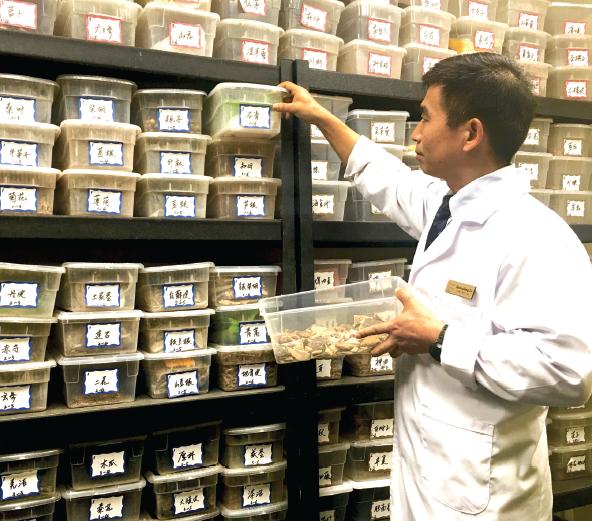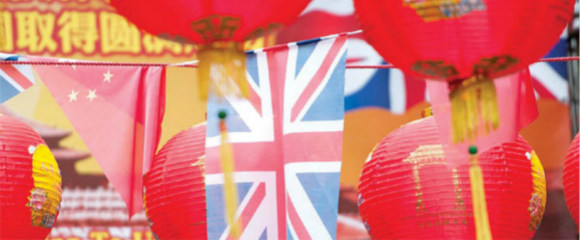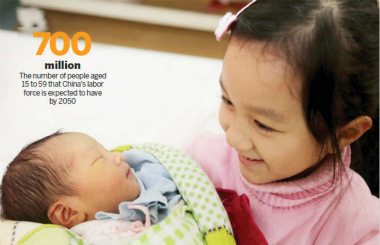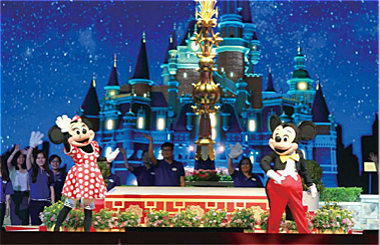Will TCM ever go mainstream?
Updated: 2016-01-15 03:58
By Dong Leshuo(China Daily Canada)
|
|||||||||||
 |
|
Dr Quansheng Lu, an acupuncturist, at his Chinese herbal pharmacy in the Wholelife Chinese Medicine and Acupuncture Center in Rockville, Maryland, on Dec 8. Provided to China Daily. |
At the Karolinska Institutet in Stockholm, one of the largest and most prestigious medical universities in the world, hundreds of the world’s top medical researchers and practitioners listened as a Chinese lady spoke.
The speaker on Dec 7 was Youyou Tu, awarded the 2015 Nobel Prize in Physiology or Medicine “for her discoveries concerning a novel therapy against Malaria.”
Tu, the first Chinese national to win a Nobel Prize, talked about how she with other Chinese scientists, extracted the malaria-fighting compound Artemisinin from the plant Artemisia annua to treat Malaria.
She called her breakthrough “a successful example of collective exploration in Chinese medicine.”
“Artemisinin is a gift to the world from Traditional Chinese Medicine,” Tu said.
Shennong, an emperor of China who is said to have lived about 4,500 years ago, is thought to have taught the ancient Chinese the use of herbal drugs. Chinese herbal medicine, along with acupuncture and many different practices and therapies, make up Traditional Chinese Medicine (TCM).
For more than 4,000 years, TCM has been an integral part of Chinese culture and the predominant medical treatment for a large part of the world’s most populous country.
But the Chinese herbal medicine, from which Tu extracted Artemisinin to fight malaria, is still not a legal drug in the United States.
Twilight zone
Chinese herbal medicine continued to remain in the twilight zone of medical treatment in the US until 1994 with the passage of the Dietary Supplement Health and Education Act (DSHEA).
President Bill Clinton signed the Act into law, saying that “after several years of intense efforts, manufacturers, experts in nutrition, and legislators, acting in a conscientious alliance with consumers at the grassroots level, have moved successfully to bring common sense to the treatment of dietary supplements under regulation and law.”
Under the act, Chinese herbal medicine can only be sold to supplement a diet, must be taken by the mouth and contain a dietary ingredient, which includes vitamins, minerals and herbs or other botanicals.
While the Chinese practice of acupuncture is accepted and practiced widely in the US, it will be much harder for Chinese herbal medicine to integrate because “there are all kinds of issues about safety around quality control,” said Ted J. Kaptchuk, a professor of medicine at Harvard Medical School and author of The Web that Has No Weaver: Understanding Chinese Medicine, a book on the theory and practice of Chinese alternative medicine.
“The complexity of Chinese herbal medicine is much more than acupuncture. It’s going to be a much slower process for Chinese herbs,” said Kaptchuk, who went to Macao to study TCM from 1971 to 1975 and graduated with a degree in Chinese Medicine.
In 2007, an editorial in the scientific journal Nature described TCM as “largely just pseudoscience, with no rational mechanism of action for most of its therapies.”
“Traditional Chinese medicine has an enormous treasure of different herbs for different conditions, which have been trying to be utilized in the Western world,” said Dr Brian Berman, a tenured professor of family and community medicine, director of the University of Maryland School of Medicine Center for Integrative Medicine and president and founder of the Institute of Integrative Health.
As a Western trained medical doctor who was looking for solutions to chronic diseases in particular, Berman started to study acupuncture, and the Chinese exercises Taiqi and Qigong about 30 years ago.
“I think there are many challenges. One of them is the quality of product. Some of the herbal companies are very good. But some of the other products are not as good, giving the companies a bad reputation,” Berman said.
Thousands of herbs
When it comes to Chinese herbal medicine, a single formula is usually composed of many herbs, each of which has numerous chemical compounds. Thousands of herbs — mainly plant but also animal and mineral products — are used in TCM. They can be taken as capsules, powders or tea. If taken in the wrong dose, they can be toxic.
There is concern about quality control and the consistency of herbal preparation because quality and chemical constituents vary from field to field, season to season and one extraction process to another.
Due to inherent differences in how Western medicine and TCM are practiced, employing the Western medicine-based gold standard research methods to evaluate TCM is challenging, said Berman.
“Many patients are being told by their doctors that we don’t really know about these therapies. They are not collectively introducing them,” Berman said. “We have large clinical trials. We have a very long clinical trial of acupuncture and there is a published paper that it is a safe in practice,” he said.
Berman said that it is even hard to do research on herbal medicine.
“When we decided to do a Chinese herbal formula study, it was hard for us to recruit people to do the study. Because people were concerned about whether the medicine would contaminate them,” Berman said.
“Getting the funding to do the research is also a challenge, but I think the challenges are getting easier and easier. There was a huge challenge to even study it. People asked what it was like and why are you doing this. Now I think people realize we have to look at that. People are suffering from a lot of problems that we don’t have the answers to, so we have to look widely because Chinese herbal medicine has a lot to offer. And I think we should keep costs at a low level so that it will not be so expensive,” Berman said.
Major problem
Insurance companies pose another major problem to the legitimacy of TCM in the US. A patient can make an insurance claim for acupuncture but not for herbal treatment.
“Most of the time, acupuncture works best with medicine. That’s why acupuncturists in China usually also prescribe Western medicine as well as herbal medicine to the patients. But in the US, without an MD license, the acupuncturist cannot prescribe the Western medicine. We can give the patient herbal medicine, but the cost must be covered by the patient,” said Dr Quansheng Lu, who worked in China as a doctor specializing in TCM for 14 years and is a licensed acupuncturist in Rockville, Maryland.
He said one of the challenges facing TCM in the US has been positioning it in the health system, whereas in China it is a mainstream medical and health solution. Lu thinks more communication and promotion of TCM needs to be done in the US to put it on equal footing with its use in China.
Many Chinese remedies appear to have significant therapeutic value and some work on conditions for which Western doctors have no pharmaceutical drugs, according to Dr Andrew Weil, a longtime proponent of TCM to treat a wide range of conditions.
“People use TCM for diseases that have not been successfully treated by modern medicine. Sometimes for diseases when there is no other kind of treatment available,” Kaptchuk said.
One of Lu’s patients was a senior executive at an international organization in Washington. He had been suffering from eczema for a long time and the condition seriously affected his life and work. Despite seeing dozens of dermatologists in the area, including some specialists at established medical institutions such as the Johns Hopkins Hospital, nothing helped.
Lu said he treated him with acupuncture and herbal medicine in 2014, and after a month, the man was fully cured.
“I think they (American patients) are looking for treatments that are safe and effective and that work particularly for some of the chronic diseases like diabetes and pain problems,” Berman said.
“Things like pain are probably the most important to be treated by acupuncture. For herbal medicine, function disorders would be important,” Kaptchuk said.
To get accepted in the US, Berman said TCM will have to undergo a “gold standard” medical trial and efficacy study.
“I think acupuncture and other forms of TCM can be shown that they are effective to treat diseases. I think without that (the trial), it won’t be accepted so much. If they (TCM) really want to go to the mainstream, they have to go through clinical trials and be evaluated in that way,” Berman said.
He said several Chinese herbal medicine trials have been done and are being done in different parts of the world. “Among them, there are about 35 Chinese medicines in trial in areas such as for headaches,” Berman said.
Danshen Dripping Pill
In the US, the one that is the closest to the finish line is the compound Danshen Dripping Pill, a Chinese herbal treatment for angina and coronary heart disease. It successfully completed the FDA’s Phase II clinical trials in July 2010. Once it passes Phase III investigations, which would most likely happen in this year, it would be the first Chinese medicine to become a prescription drug in the US.
This would be an FDA endorsement of the herbal combination to treat potentially serious illnesses, said Mark Blumenthal, founder and executive director of the American Botanical Council, according to an earlier article published in 2014 in China Daily.
The Danshen Dripping Pill is one of the products produced by Tasly Pharmaceuticals, Inc that it calls “modern Traditional Chinese Medicine (mTCM)”.
“The first thing we did to get it approved was to build a solid foundation in science and collect enough evidence,” said Henry Sun, president and CEO of Tasly, based in Rockville, Maryland. “Our goal is to bring our well-evidenced mTCM products to benefit American patients. “
Sun said he believes that the development of chemical pharmaceuticals has been slowing down and reached a bottleneck because lead compounds, new structures and disease targets have been explored extensively. “But in a way, mTCM is all natural, and it provides a new, significant resource for the discovery and development of pharmaceuticals,” he said.
“If the Danshen Dripping Pill is approved by the FDA, I believe there will be lots of pharmaceutical companies doing research on it. They may develop new chemical pharmaceuticals from it. In this sense, the Chinese medicine, which is based on extensive clinical experiences, could contribute a whole repository to science and clinical research in the future,” Sun said.
And in her speech in Stockholm, Tu said: “If we inherit and keep developing (TCM), there will be new findings and inventions which will benefit every human being.”
Cleveland Clinic
In January 2014, the Cleveland Clinic, one of the country’s top hospitals, opened its herbal clinic. It is part of Ohio hospital’s Center for Integrative Medicine, which also provides acupuncture, holistic psychotherapy and massage therapy.
“Western medicine does acute care phenomenally.… But we’re still struggling a bit with our chronic-care patients and this fills in that gap and can be used concurrently,” Melissa Young, an integrative medicine physician at the clinic told The Wall Street Journal in a story published in April 2014.
To be treated, patients must be referred by a doctor and will be monitored to ensure that there are no drug-herbal interactions or other complications.
Osher Center for Integrative Medicine at Northwestern University and NorthShore University HealthSystem, affiliated with the University of Chicago, both include herbal medicine among their offerings.
Treatments
Herbal medicine is used to treat a variety of conditions either as a primary treatment or in conjunction with conventional medicine or other treatments and is especially useful in chronic illness.
Conditions often seen by herbalists include: allergies; asthma; arthritis; anxiety; depression and stress related conditions; acne and other skin problems; anxiety; digestive and bowel conditions; cystitis and prostate enlargement; infertility; menstrual disorders and symptoms; angina; high blood pressure; poor circulation; varicose veins; infections and immune deficiency; headaches; migraine; insomnia; and chronic fatigue.
Contact the writer at leshuodong@chinadailyusa.com
Pan Jialiang in Washington contributed to the story.
Today's Top News
China, Saudi Arabia sign deals on Xi's visit
Hollande announces $2.2b plan to create jobs
Chinese conductor becomes first woman in charge of BBC orchestra
Taxi drivers in Budapest protests against Uber
China gains major win in trade dispute with EU
Xi to deliver speech on Middle East policy
AIIB chief vows to run clean, lean, green institution
Chinese firms making inroads in UK
Hot Topics
Lunar probe , China growth forecasts, Emission rules get tougher, China seen through 'colored lens', International board,
Editor's Picks

|

|

|

|

|

|






